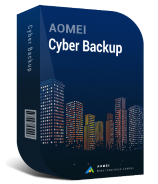VMware vSphere is a powerful virtualization platform, but managing hybrid versions can be tricky. A common question among IT administrators is: can vCenter 8 manage ESXi 6.7? What can vCenter 8 support ESXi versions?
Can vCenter 8 Manage ESXi 6.7?
VMware’s Official Stance
According to VMware’s Compatibility Matrix, vCenter Server 8 does support managing ESXi 6.7 hosts, but with limitations:
- vCenter 8 requires ESXi 6.7 Update 3 (or later) for full functionality.
- Some newer vSphere 8 features (like vSphere Distributed Services Engine) won’t work on older hosts.
- VMware recommends upgrading ESXi hosts for optimal performance and security.
Key Considerations
1. Mixed Environment Challenges
- Managing older ESXi versions with vCenter Server 8 may result in reduced functionality.
- Security patches for ESXi 6.7 have reached End of General Support (EOGS) as of October 2022.
2. Upgrade Recommendations
- If possible, upgrade ESXi 6.7 to 7.0 or 8.0 for better compatibility.
- If staying on 6.7 is necessary, ensure it’s at least Update 3 and monitor for vulnerability.
Compatibility Issue - vCenter 8 Supported ESXi Versions
vCenter Server 8 supports management of the following ESXi host versions:
|
ESXi Version |
Support Status |
Notes |
|
ESXi 8.0 |
Fully Supported |
Recommended for full feature compatibility |
|
ESXi 7.0 |
Fully Supported |
Update 3 or later recommended |
|
ESXi 6.7 |
Limited Support |
Requires Update 3 (vCenter 8 does not support earlier patches) |
|
ESXi 6.5 and older |
Not Supported |
Cannot be managed by vCenter 8 |
Why You Need a Reliable Backup Solution
ESXi 6.7 is not compatible with vCenter 8. But you can perform a backup and then upgrade ESXi 6.7 to 7, or upgrade directly to ESXi 8, because a path exists to upgrade from ESXi 6.7 to ESXi 8. AOMEI Cyber Backup is a good choice; it offers a cost-effective and efficient way to protect your virtual infrastructure.
AOMEI Cyber Backup is a professional VM backup and recovery solution that supports VMware ESXi (including 6.7) and Microsoft Hyper-V.
✅ Key Features:
Agentless Backup – No need to install agents on each VM.
Automated Backup Schedule – Set up daily/weekly backups effortlessly.
Flexible Storage – Save backups to local disks, NAS, or cloud storage.
Quick Recovery – Restore entire VMs or individual files in minutes.
Cost-Effective – No per-VM licensing fees, unlike some enterprise solutions.
Simple Steps to Backup Large-Scale vCenter VMs
Step 1. Navigate to Source Device > VMware > + Add VMware Device to add vCenter or Standalone ESXi host directly. And then click … > Bind Device. No need to install agents on each device.
Step 2. Create backup task by clicking Backup Task > Create New Task. You can select as many VMs as you need to back up at once.
- Task Name: Select VMs for backup and enter a special name for the backup task.
- Target: Choose Target to store data, such as backup VMware VM to external hard drive, local drive, or network location.
- Schedule: Schedule daily/weekly/monthly VMware backup with different backup strategies, such as full backup for the entire VM and incremental backup for the changed data.
- Backup Cleanup (for upgrade): Set backup cleanup to auto-delete the old backup copies that exceed the retention period you specified.
Step 3. Click Start Backup to execute (or just create) the task.
Conclusion
vCenter 8 supports ESXi 6.7 (Update 3+) but has limited functionality. For optimal security and functionality, upgrade to ESXi 8.0. Use AOMEI Cyber Backup to protect VMs with agentless automated protection during migration. Reliable backups ensure a smooth transition in mixed environments.



